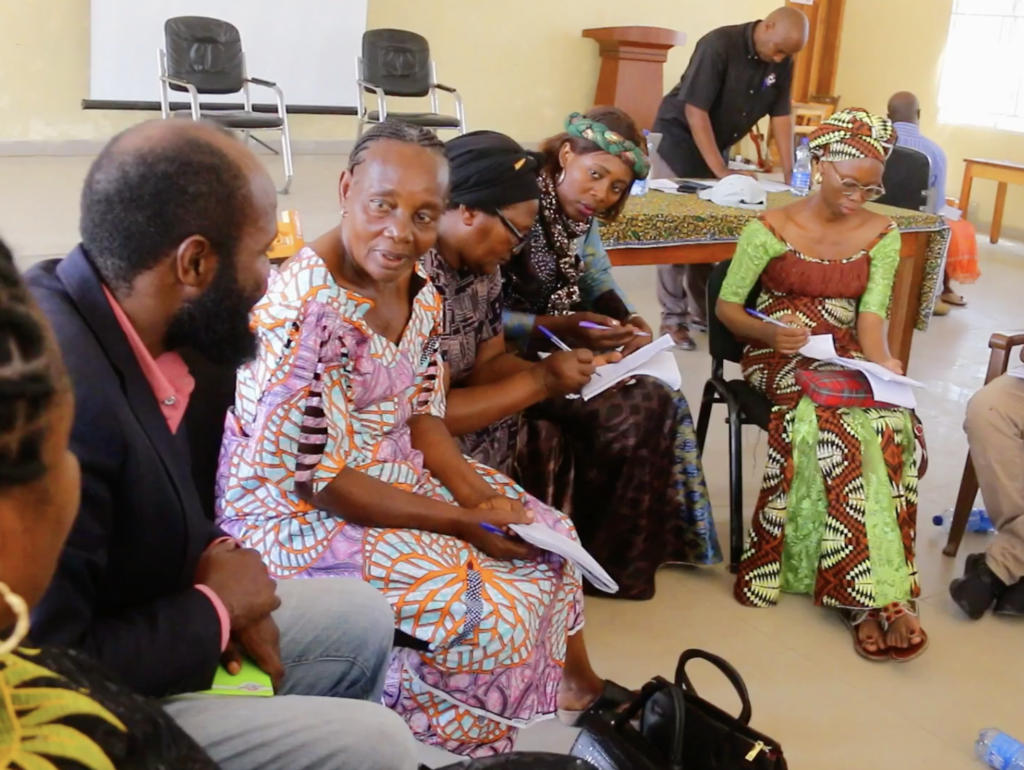About us
PeaceWomen Across the Globe is an internationally active feminist peace organisation based in Bern that supports women in contexts affected by armed conflict in their diverse efforts to build lasting peace.


In November 2024, SOFAD with the support of PeaceWomen Across the Globe’s Feminist Peace Initiatives carried out a Women’s Peace Table to contribute to peace in the Great Lakes sub-region. The Women’s Peace Table facilitated the collaboration between the neighbouring countries DRC, Burundi and Rwanda by facilitating dialogue between different women, including some whose husbands, children and brothers are members of armed groups.
We, the women of the sub-region, have noted the absence of women in decision-making bodies in the areas of peace negotiations, conflict resolution, mediation and among the signatories of agreements. We said to ourselves that it would be preferable for us to get together to contribute to stabilisation, peace, security and cross-border cooperation at sub-regional level.
The Women's Peace Table was attended by members of SOFAD, actors from politics and administration, religious representatives, employees of educational institutions, journalists, social and cultural activists, and members of other civil society organisations from the DRC, Rwanda and Burundi.
The Women’s Peace Table also aimed to strengthen an early-warning strategy against violations of women's and girls' rights in neighbourhoods, villages and commercial centres in the region, to follow-up on the implementation of a territorial peace-building programme, multiply awareness-raising campaigns and to support capacity-building workshops on advocacy, mediation, reconciliation, intra- and inter-community dialogue and cross-border dialogue.
The film below gives you insights into the Women's Peace Table. Please note: the film is in French. You can activate automatically generated French subtitles.
We have come here to find out about, understand and act on peace in the region, to establish peace, prevent conflicts and manage the conflicts that are already in place, to try to have peaceful countries. We neighbouring countries need the best possible relations because we need each other. (...)The important thing for me is that our neighbours also have the peace that we are constantly seeking. My message is addressed to those in power, to those in charge: let them put peace first, because without peace nothing works.